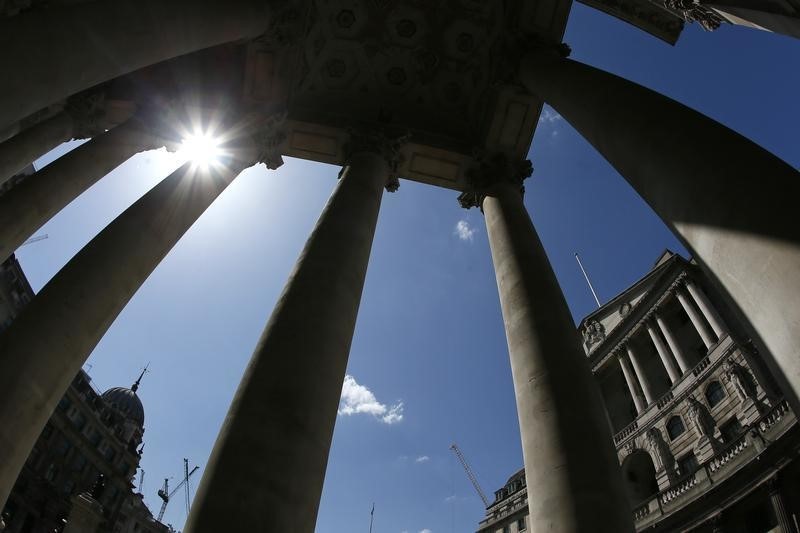By David Milliken and William Schomberg
LONDON (Reuters) - The Bank of England said on Thursday its rate-setters felt the threat to the world economy from China's stock-market slump did not signal a slowdown for Britain, as they left interest rates at a record-low of 0.5 percent.
Policymakers voted 8-1 to keep rates unchanged, as expected, and they broadly agreed with Governor Mark Carney, who has said that, so far, China's slowdown is unlikely to derail the plan to gradually raise British rates.
Sterling
Economists said a rate hike looked on track for early 2016.
"The MPC doesn't appear too shaken by recent global developments, which it said did not materially alter its central view," said Vicky Redwood, from the consultancy Capital Economics. "Indeed, the minutes highlighted that inflation should still pick up around the turn of the year."
The BoE's decision followed a month of declines on global stock markets, driven by financial turmoil in China, and signs of some weakness in Britain's economic recovery.
Investors are also uncertain about whether the U.S. Federal Reserve will raise rates next week for the first time since the 2007-09 financial crisis. Such a move would be likely to have knock-on effects across global financial markets.
"Although the downside risks emanating from overseas had risen, it would be premature to draw strong inferences from this month's events for the likely path of activity in the United Kingdom," the MPC said in minutes of its monthly policy meeting.
Domestically, the MPC is balancing a relatively robust recovery with inflation that is far below target due to past oil price falls and subdued wage pressure.
But a minority of policymakers saw a danger that near-zero inflation could rise faster than forecast and exceed its 2 percent target in a couple of years, suggesting they would not take much more persuading to back a rate hike.
For one policymaker, Ian McCafferty, this risk was already big enough that he voted for a second month in a row for an immediate rate rise to 0.75 percent, arguing it would help ensure rates rise only gradually.
Carney, the BoE's governor, said last month the decision on when to raise rates was likely to come into "sharper relief" around the turn of the year, and that China's problems did not appear poised to have a big impact on Britain.
However, figures on Wednesday showed an unexpected drop in British industrial output, partly due to faltering overseas demand. Broader surveys have pointed to a slowdown in growth in the third quarter to around 0.5 percent.

The central bank's staff trimmed their forecast for third-quarter growth to 0.6 percent from 0.7 percent, roughly in line with Britain's average rate of growth.